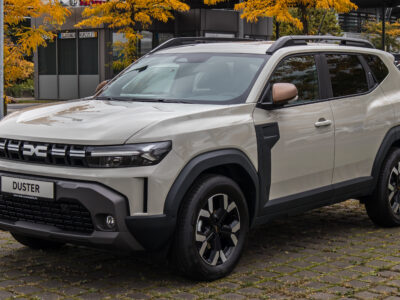
Nissan Juke Won’t Start: Common Causes and Expert Fixes
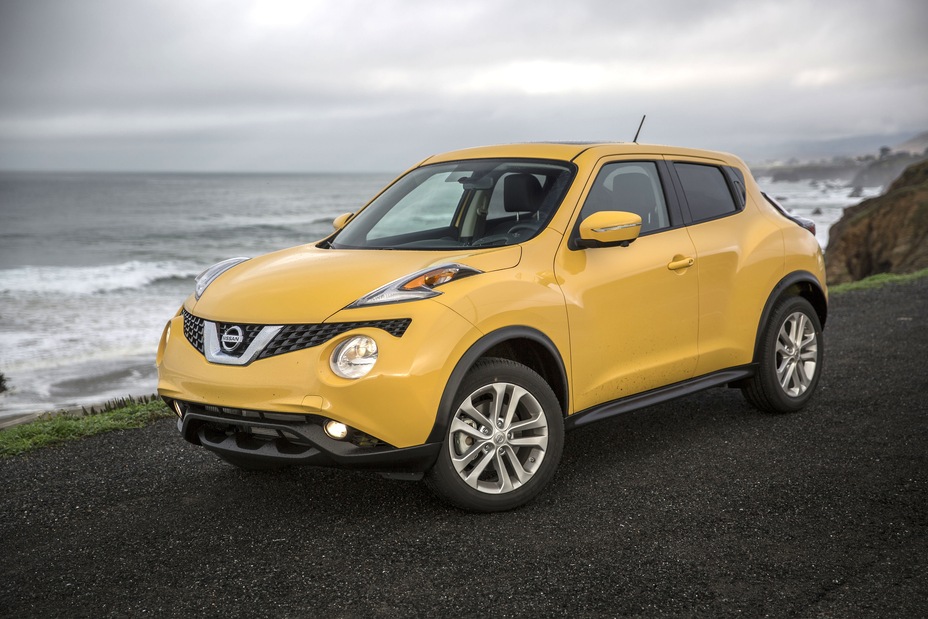
When your Nissan Juke refuses to start, it can quickly turn from convenience to chaos. Whether you drive the first-generation Juke (F15, 2010–2019) or the newer F16 model, the no-start issue usually stems from one of a few core problems. In this detailed guide, we’ll walk through every likely cause, how to diagnose it properly, and the exact steps to fix it safely.
- 1. Flat or Weak 12V Battery
- 2. Corroded Battery Terminals
- 3. Dead Key Fob Battery
- 4. Faulty Starter Motor
- 5. Faulty Alternator
- 6. Clogged Fuel Filter
- 7. Fuel Pump Malfunction
- 8. Blown Fuse or Relay Failure
- 9. Defective Spark Plugs or Ignition Coils
- 10. Rodent Damage to Wiring
- 11. Engine Mechanical Failure
- 12. Immobiliser or ECU Fault
- How to Prevent Nissan Juke Starting Problems
- When to Seek Professional Help
- Final Thoughts
1. Flat or Weak 12V Battery
How to Recognise a Failing Battery
If the engine cranks slowly or not at all, the culprit is often a drained or dying battery. Dim dashboard lights or a faint clicking sound are tell-tale signs. A healthy Juke battery should measure between 12.4V and 12.8V when at rest.
Testing the Battery
- Set your multimeter to DC voltage.
- Connect red to the positive (+) and black to the negative (–) terminal.
- A reading below 11.5V signals a deeply discharged battery.
If the voltage drops significantly while cranking, the battery likely needs replacement.
Jump-Starting a Nissan Juke
You can jump-start your Juke using another vehicle or a portable booster:
- Connect the red cable to the positive terminal on both batteries.
- Attach the black cable to the donor’s negative terminal, then to bare metal on your Juke’s engine bay.
- Start the donor vehicle, wait 60 seconds, then start your Juke.
- Remove the cables in reverse order.
Pro tip: Always let the engine run for at least 20 minutes afterwards to recharge the battery or drive for 10–15 miles.
2. Corroded Battery Terminals
Even a healthy battery can’t deliver power if the connections are corroded. White or bluish-green residue on the terminals can block current flow.
How to Clean Battery Corrosion
- Remove the negative cable first, then the positive.
- Mix baking soda and warm water to neutralise acid residue.
- Gently scrub with a non-metallic brush.
- Rinse and dry before reconnecting the terminals (positive first).
Apply a thin coat of petroleum jelly to prevent future corrosion.
3. Dead Key Fob Battery
If your Juke has a keyless start system, a flat key fob battery may prevent the car from recognising the key signal. The doors might not unlock, and the start button may do nothing.
How to Start Your Juke with a Dead Key Fob
Hold the fob against the START/STOP button and press firmly while stepping on the brake or clutch pedal. The passive RFID chip inside the key still communicates with the immobiliser, even with no battery power.
If it still doesn’t respond, try the spare key fob—a useful way to rule out water damage or faulty circuitry.
4. Faulty Starter Motor
The starter motor engages the flywheel to spin the engine. When it fails, you’ll hear a single click or repeated ticking but no crank.
Common Symptoms
- Lights and radio work, but the engine doesn’t turn over.
- A rhythmic click when turning the key.
- Occasional success after tapping the starter housing.
Temporary Fix
Lightly tap the starter motor with a stick or wrench while turning the key. This can free a jammed solenoid—but only temporarily. For reliability, the starter should be replaced by a professional.
You may be interested in reading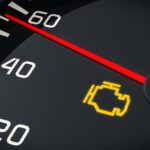 Nissan Juke Engine Malfunction Service Now – Complete Fix Guide
Nissan Juke Engine Malfunction Service Now – Complete Fix Guide5. Faulty Alternator
A failing alternator will drain the battery even while driving, leaving your Juke powerless the next morning.
Warning Signs
- Battery warning light illuminated.
- Dimming headlights when idling.
- Burning smell from engine bay.
The alternator typically lasts 100,000–150,000 miles but may wear sooner in stop-start city driving. Have it tested for charging output (should show around 14V while running). Replace it if readings are consistently low.
6. Clogged Fuel Filter
Fuel filters trap debris before it reaches the injectors. Over time, they clog and restrict fuel flow, leading to weak starts or stalling.
Diagnosis
- Hard starting or uneven idle.
- Engine hesitates during acceleration.
- Whining fuel pump sound from the rear.
Unlike some filters that can be cleaned, the Juke’s fuel filter must be replaced entirely. A technician can do this safely since it involves depressurising the fuel system.
7. Fuel Pump Malfunction
A defective fuel pump stops petrol from reaching the injectors. It’s one of the more serious no-start issues.
How to Identify a Failing Pump
- No hum from the tank when switching ignition ON.
- Engine cranks but doesn’t fire.
- Poor acceleration or sudden stalls before failure.
A garage can verify pressure using a fuel pressure gauge. Replacing the pump requires dropping the fuel tank, so it’s a job for professionals.
8. Blown Fuse or Relay Failure
A blown ignition or fuel pump fuse can instantly cut power to the starting system.
Quick Check
Locate your fuse box (under the bonnet or dashboard) and inspect the start-related fuses. Replace any that look melted or burnt, using the correct amperage rating.
Caution: Always turn off the ignition before handling fuses. If the same fuse blows repeatedly, an electrical short is present and needs diagnosis.
9. Defective Spark Plugs or Ignition Coils
For the petrol-powered Juke, faulty spark plugs or ignition coils can prevent ignition.
Symptoms
- Rough idling or backfiring.
- Cranking without firing.
- Check Engine light with codes like P0300–P0304 (misfire detected).
Inspect spark plugs for oil fouling or carbon build-up. Replace them at intervals recommended in your owner’s manual—typically every 40,000–60,000 miles.
10. Rodent Damage to Wiring
Rodents occasionally chew through wiring looms, especially in vehicles parked outdoors or near vegetation.
You may be interested in reading Nissan Juke Engine Malfunction Service Now – Complete Fix Guide
Nissan Juke Engine Malfunction Service Now – Complete Fix Guide Nissan Juke Radio Not Working: The Complete Troubleshooting Guide
Nissan Juke Radio Not Working: The Complete Troubleshooting GuideWhat to Look For
- Gnawed cables around the air box or under the bonnet.
- Bite marks near the alternator or ECU.
- Blown fuses or erratic sensor readings.
Repairs often require loom replacement, which can be costly. Prevention includes ultrasonic repellents and keeping the engine bay clean.
11. Engine Mechanical Failure
Though rare, serious engine damage can cause total failure to start.
Possible Causes
- Broken timing chain/belt leading to valve damage.
- Oil starvation causing seized pistons.
- Hydrolock from water ingestion.
- Severe overheating warping engine components.
These situations demand professional inspection and often major repairs or engine replacement.
12. Immobiliser or ECU Fault
Modern Jukes rely on sophisticated electronics. A corrupted ECU (Engine Control Unit) or immobiliser fault can interrupt communication with the ignition system.
Fix
Use an OBD-II scanner to read fault codes:
- Plug the scanner under the dashboard port.
- Turn ignition ON (engine off).
- Record error codes and interpret them using a code list.
Common immobiliser issues (codes like P1610 or P1612) often require dealer-level reprogramming.
How to Prevent Nissan Juke Starting Problems
- Drive regularly to keep the battery charged.
- Clean battery terminals every six months.
- Replace key fob batteries annually.
- Avoid short trips that don’t recharge the alternator.
- Service fuel and ignition systems according to the manufacturer’s schedule.
When to Seek Professional Help
If you’ve checked the battery, fuses, and fuel but your Nissan Juke still won’t start, it’s time to contact a qualified technician. Persistent no-start conditions can indicate hidden electrical faults or ECU issues best diagnosed with professional diagnostic equipment.
Final Thoughts
A Nissan Juke that won’t start can have dozens of potential triggers, but most stem from battery, fuel, or ignition issues. By methodically eliminating the most common causes—starting with the simplest—you can save both time and money. Still, never hesitate to seek professional help if the issue persists, especially with modern models packed with complex electronics.
FAQs
1. Can a weak alternator cause my Nissan Juke not to start?
Yes. If the alternator isn’t charging, the battery will eventually drain, leaving insufficient power to start the car.
2. How long should a Nissan Juke battery last?
Typically 3–5 years, depending on usage and climate. Frequent short journeys shorten lifespan.
3. Where is the OBD-II port located in the Juke?
It’s under the dashboard near the steering column—usually behind a small plastic cover.
4. What size battery does a Nissan Juke use?
Most UK Jukes use an 063-size 12V battery, but always verify against your model year.
 Nissan Juke Engine Malfunction Service Now – Complete Fix Guide
Nissan Juke Engine Malfunction Service Now – Complete Fix Guide Nissan Juke Radio Not Working: The Complete Troubleshooting Guide
Nissan Juke Radio Not Working: The Complete Troubleshooting Guide Nissan Juke Juddering When Accelerating: Causes, Fixes, and Insights
Nissan Juke Juddering When Accelerating: Causes, Fixes, and Insights5. Can I reset the immobiliser myself?
Minor issues can sometimes be cleared by disconnecting the battery for 10 minutes, but persistent immobiliser faults require diagnostic tools or dealer intervention.
If you want to know other articles similar to Nissan Juke Won’t Start: Common Causes and Expert Fixes you can visit the category Common Problems.
Leave a Reply

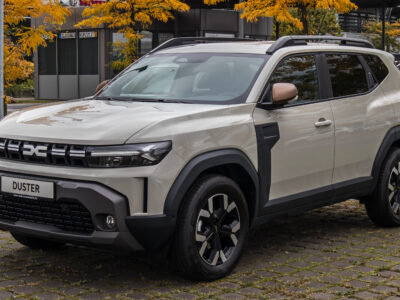
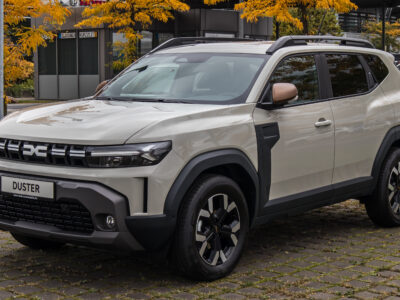
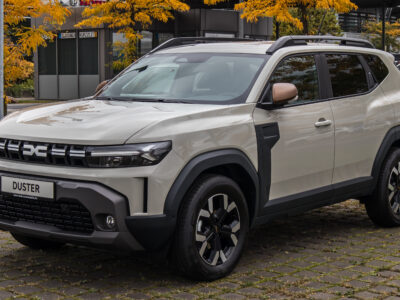
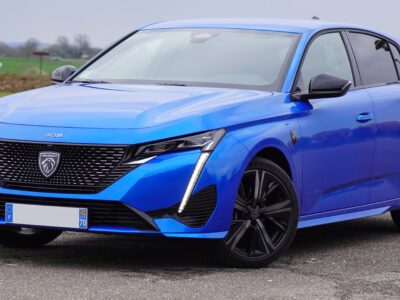
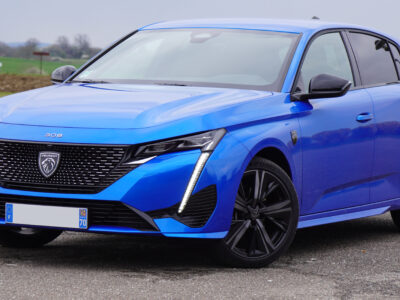
More content of your interest